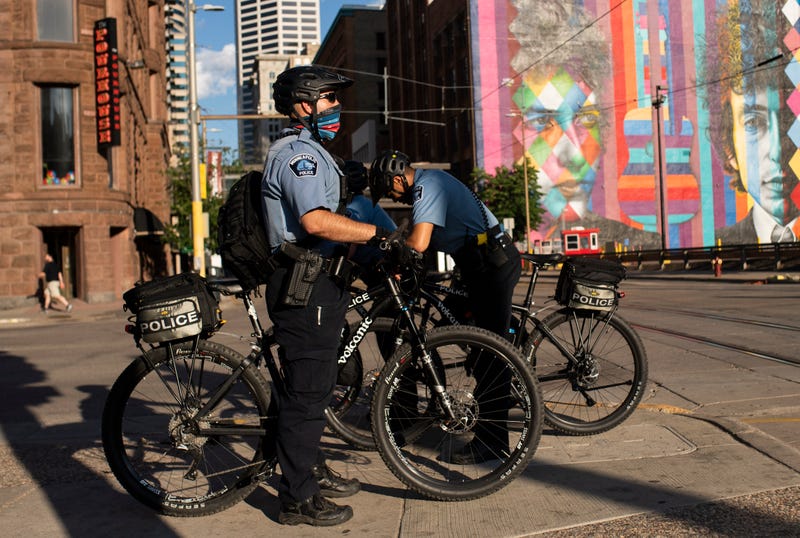
Following the death of George Floyd at the hands of the Minneapolis police last summer, it seems that officers are no longer as present as they once were in the city.
A new report looked into police presence over the last year as shootings in Minneapolis continue to shake the city and officer encounters drop.
Brandy Earthman spoke to Reuters about the issues facing the city after bullets crashed through the walls in her north Minneapolis home, striking her 19-year-old son in the arm.
"They don't care anymore," she said. "They're just going to let everybody kill themselves."
Policing has dramatically changed with waves of officers resigning from their positions, as calls for defunding the police continue to ring throughout the city.
More recently, some city officials have been attempting to move control of the city police department from the mayor to a council of 14 officials.
This has been met with criticism by many throughout the city, but some, like Minnesota Attorney General Keith Ellison, have been on board.
"I believe better police-community relations mends themself to public safety," Ellison said. "Where people feel comfortable and safe calling the police department and cooperating with the prosecution, that means there's less space for criminal wrongdoers to run around."
However, because this has not yet gone into effect, it is not the cause for the city's police lack of presence. Instead, the department has imposed its own changes, adopting a hands-off approach to everyday lawbreaking, Reuters found in its report.
The report found that almost immediately after Floyd's death, officers all but stopped making traffic stops, and fewer people considered "suspicious" by officers were approached, records show.
Most in the city had said that the men and women in blue took a step back when Floyd died, fearing any encounter could turn into something similar. Even reports from officers said the same thing.
Ken Sherman, the owner of Seven in Minneapolis, spoke about the police's presence in the city, or lack thereof.
Sherman shared that when working at his restaurant, he can go days without seeing officers all night.
"I'm on a rooftop on Hennepin and Seventh. I can be on that rooftop on a Saturday night and get there at 9 or 10 p.m. be there till 2-2:30 a.m. and never see a police car and absolutely never see a policeman walking down the street," Sherman said. "The only police we see are off-duty cops hired by other bars or restaurants."
He says that residents from the suburbs no longer go into the city at night and that he has been forced to pay for more security to make his customers feel safe.
Sherman went on to say that, "This city is run by gangs. The only thing a bad guy is afraid of is a badder guy."
Scott Gerlicher, a Minneapolis police commander who retired this year, shared that no one wants to be a police officer anymore.
"There isn't a huge appetite for aggressive police work out there, and the risk/reward, certainly, we're there, and we're sworn to protect and serve, but you also have to protect yourself and your family," Gerlicher said. "Nobody in the job or working on the job can blame those officers for being less aggressive."
Reuters reported that the number of people approached on the street by officers who considered them suspicious dropped by 76%. The report analyzed more than 2.2 million police dispatches in the city. It also found that officers stopped 85% fewer cars for traffic violations.
An officer who retired and spoke to Reuters anonymously called it "self-preservation."
"The supervisor was like, 'I don't blame you at all if you don't want to do anything. Hang out in the station.' That's what they're saying," he said, Reuters reported.
Mayor Jacob Frey reported that with a quarter of the city's uniformed officers retiring or quitting since Floyd was killed, he has been forced to pull some officers from investigative duties to make sure 911 calls are answered.
"Cities do need police officers, and yes, there are severe consequences when the numbers get as low as ours," he said.
With 66 homicides and multiple children being shot in the first eight months of the year alone, something must be done. But the struggle to replace the 200 officers lost since 2019 and put an end to the surge in crime does not look to be ending soon.




